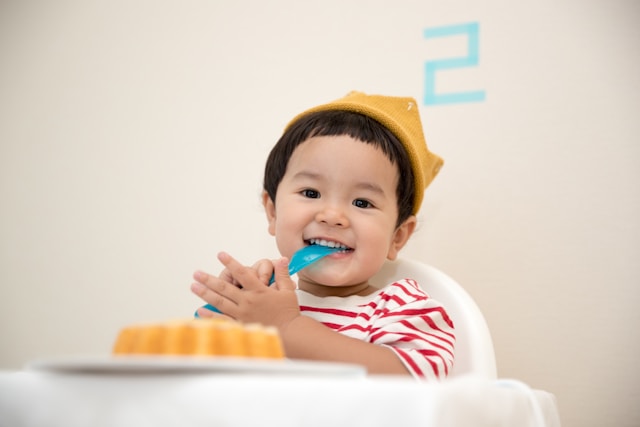
Preschoolers are at a crucial stage in their social development.
At this age, children start to form their first friendships, learn to share, and develop empathy for others.
These early social interactions are more than just play; they’re critical for building the skills needed to interact positively with others throughout life.
As parents and caregivers, it’s important to actively support and guide preschoolers in developing these essential skills.
The Importance of Social Skills for Preschoolers
Social skills are the abilities that help kids interact with others.
For preschoolers, having strong social skills is really important for their growth and development.
Here’s why:
Building better friendships
When preschoolers have good social skills, they can make friends more easily.
Skills like sharing, taking turns, and listening to others help them get along well with their peers.
These friendships are important because they provide support, companionship, and a sense of belonging.
Kids who interact positively with others are more likely to form strong, lasting friendships.
Boosting self-esteem
Social skills also help preschoolers feel good about themselves.
When they can communicate effectively and manage their emotions, they’re more confident in social situations.
This confidence contributes to a healthy self-esteem, making them feel valued and capable.
Success in school
Strong social skills are linked to better success in school.
Preschoolers who interact well with their classmates and teachers are more likely to participate in classroom activities and cooperate with others.
This positive behavior supports their learning and helps them perform better academically.
Reducing behavioral problems
Children with good social skills are often better at managing their emotions and resolving conflicts.
This means they’re less likely to have behavioral issues, such as aggression or tantrums.
They understand how to navigate social situations in a way that reduces friction and promotes positive interactions.
Long-term benefits
Developing social skills early in life sets the stage for future success.
Studies show that kids who learn these skills in preschool tend to excel academically and have fewer behavioral problems as they grow older.
They carry these skills into their later school years and throughout their lives, making it easier to navigate various social and professional situations.

Practical Tips for Developing Social Skills in Preschoolers
Building social skills in preschoolers requires patience, consistency, and a supportive environment.
Here are some effective strategies to help your child develop these important skills:
Model positive behavior
Children learn a lot by watching the adults around them.
If you show kindness, respect, and empathy in your daily interactions, your child is likely to imitate these behaviors.
For example, greet others warmly, share when appropriate, and listen attentively.
Your actions set a powerful example of how to interact positively with others.
Encourage playdates
Playdates are fantastic for practicing social skills.
When children play together, they learn important lessons like taking turns, sharing toys, and communicating with each other.
Regular playdates with a small group of friends can help your child feel more at ease in social settings and make it easier for them to form friendships.
Role-playing activities
Role-playing is a fun and practical way to teach social skills.
You can set up simple scenarios where your child practices saying “please” and “thank you,” resolving conflicts, or introducing themselves to new people.
For instance, pretend you’re at a party and have your child practice introducing themselves to a new friend.
These activities help children understand social cues and how to respond appropriately in different situations.
Teach empathy
Empathy is all about understanding and sharing the feelings of others, and it’s a vital social skill.
Help your child develop empathy by discussing how people might feel in various situations.
For example, if they see another child crying, ask your child how they think that child feels and what they could do to offer comfort.
This practice helps your child become more aware of others’ emotions and learn how to respond compassionately.
Provide opportunities for group activities
Group activities like team sports or group art projects are great for teaching cooperation and teamwork.
These activities help children learn how to work together towards a common goal, communicate effectively, and be patient and flexible.
Group activities teach them how to compromise and share responsibilities, which are all important parts of interacting well with others.

Use positive reinforcement
When your child shows good social behavior, like sharing a toy or comforting a friend, make sure to praise them.
Positive reinforcement means acknowledging and encouraging the behaviors you want to see more of. Simple phrases like “Great job sharing your toys!” can boost their confidence and motivate them to keep practicing these good behaviors.
Praise helps reinforce that these actions are valued and appreciated.
Create a safe and supportive environment
Children learn best when they feel safe and supported.
Make sure your child knows that it’s okay to make mistakes and that they can learn from them.
Encourage open communication and let them know they can talk to you about their feelings and experiences.
A nurturing environment makes your child feel secure and confident to explore new social situations and interactions.
Set clear expectations
Children do better when they understand what is expected of them.
Set clear and simple rules for social behavior, such as using polite words like “please” and “thank you,” taking turns, and showing respect to others.
Consistent guidance helps children grasp social norms and learn how to interact appropriately with others.
It provides a framework for them to follow, making social interactions smoother and more predictable.
Read social stories
Social stories are illustrated stories that explain different social situations and how to handle them.
Reading these stories with your child can help them understand what to expect in various social scenarios and how to respond appropriately.
For instance, a social story might show how to greet a new friend or what to do when someone takes their toy.
These stories are especially useful for children who find social interactions challenging.
Encourage open communication
Help your child develop their communication skills by encouraging them to express their thoughts and feelings.
Ask open-ended questions about their day, their friendships, and their emotions.
For example, instead of asking “Did you have a good day?” you might ask “What was the best part of your day?”.
This encourages them to think about and articulate their experiences, which helps them understand and communicate their feelings more effectively.

Common Challenges and How to Overcome Them
As preschoolers develop their social skills, they may encounter challenges.
Here’s how to address some of the most common issues:
Shyness
Shyness is a natural part of growing up and can make social situations feel overwhelming for some preschoolers.
If your child is shy, start by encouraging them to join social activities gradually.
Begin with smaller, more familiar groups where they might feel more comfortable.
For example, invite a close friend over for a playdate before going to a larger group setting.
Praise their efforts to engage with others, even if it’s just a small step like saying hello or joining in a simple game.
Aggressive behavior
Aggressive behavior, such as hitting or yelling, can indicate that a child is having difficulty managing their emotions.
To help your child handle their feelings in a more appropriate way, teach them alternative strategies for expressing themselves.
For instance, you can encourage them to use words to describe how they’re feeling or teach them to take deep breaths when they’re upset.
Consistently reinforce positive behavior by praising them when they handle a situation calmly and without aggression.
Difficulty sharing
Sharing is a challenging concept for many preschoolers because they are still learning about ownership and fairness.
To help your child practice sharing, start by modeling the behavior at home. Take turns with toys and explain why sharing is important in simple terms.
For example, you might say, “Sharing helps us have fun together.”
When your child successfully shares with others, offer praise to reinforce this positive behavior.
Social withdrawal
Some children may withdraw from social situations due to anxiety or a lack of confidence.
If your child tends to pull back from social activities, gently encourage them to participate without pushing too hard.
Provide reassurance and emphasize the positive aspects of social interactions.
For instance, you might talk about the fun activities they’ll do or the friends they might see.
Avoid forcing them into uncomfortable situations, but make sure to offer plenty of opportunities for positive social experiences.

Final Thoughts
Developing social skills is a vital part of a preschooler’s growth and sets the stage for future success.
By modeling positive behavior, providing opportunities for social interaction, and addressing challenges with patience and support, you can help your child build strong social skills that will serve them throughout their lives.
Remember, every child is different, and it’s important to celebrate small successes along the way.


